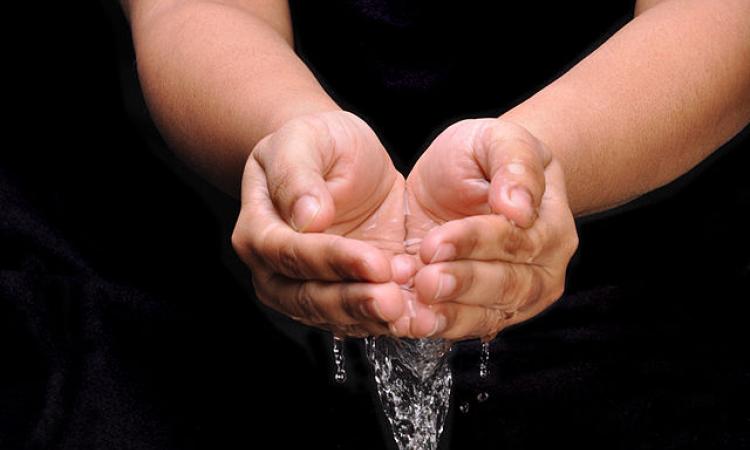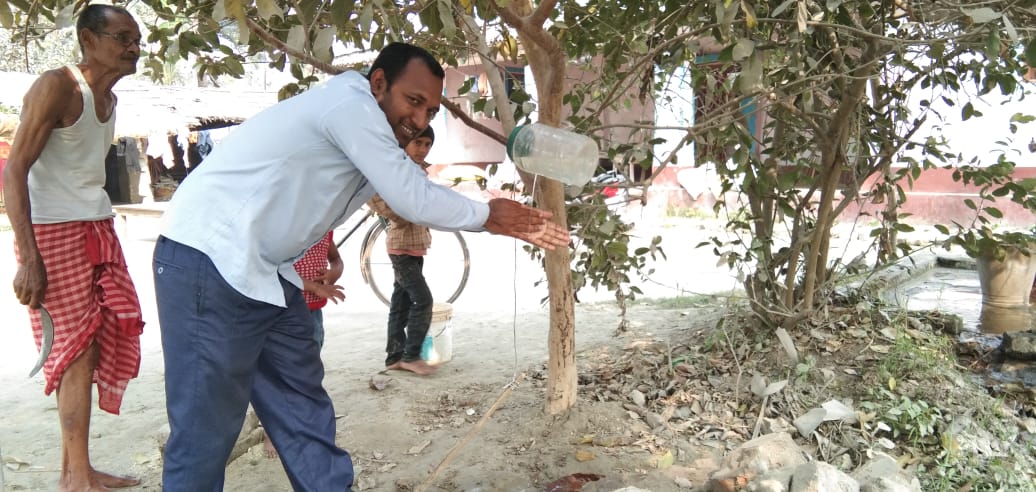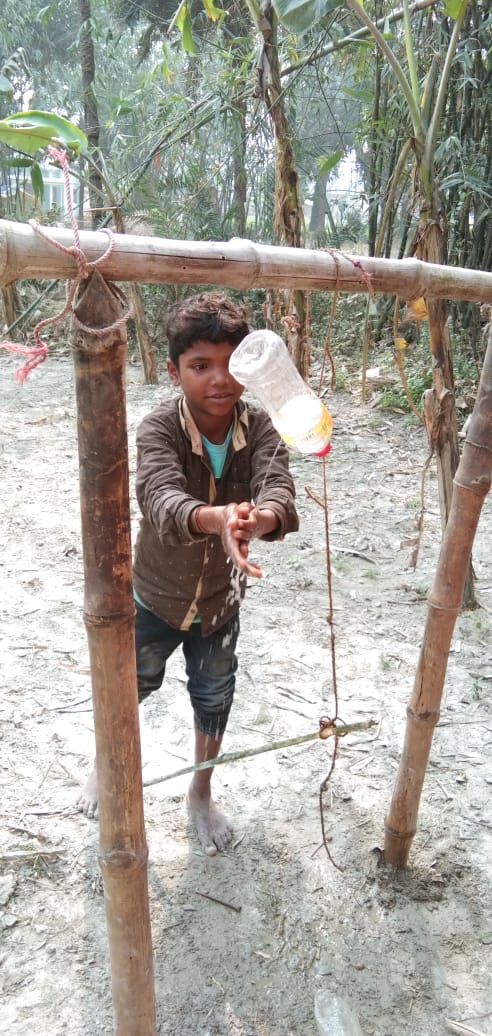
Adequate water, sanitation, and hygiene are essential components for providing basic health services, and access to safe drinking water, toilets and hand hygiene are the most critical components of WASH services. Correct, consistent, and continuous practices of WASH serve to prevent infections and spread of diseases.
WASH for health
Sehgal Foundation, a nonprofit organisation based in Gurugram, Haryana, in partnership with Centre for Affordable Water and Sanitation Technology (CAWST) Canada, is working with the most vulnerable rural populations on WASH (Water, Sanitation and Hygiene) through a pilot project named “WASH for Healthy Homes” in the Vaishali district of Bihar.
The project focuses on five hamlets of the poorest of the poor (daily wage labourers) who face economic, social and health related challenges due to lack of access to an improved water source, proper sanitation, and availability of soap and handwashing stations.
The project aims to spread awareness on the importance of safe drinking water, use of toilets and on the benefits and importance of washing hands thoroughly.
Barriers for WASH
A situation analysis of 317 poor and vulnerable families in Vaishali, Bihar, revealed that many do wash their hands with water or with water and soil, but not on a regular basis. It was also observed that they often suffer from waterborne diseases such as diarrhea and typhoid. Sensitisation and awareness-building sessions were planned that aimed at improving WASH behavior. In every session, people were informed that most diseases occur due to not washing of hands before cooking meals, before eating meals, and after the use of a toilet.
Lack of resources and knowledge are the major barriers for the poor state of handwashing practices. With awareness-building sessions, the community understood the need for hand hygiene, and started adopting those practices in their daily lives. However, they did not have enough money to build proper handwashing stations.
Tippy taps, for handwashing
Understanding this situation, the project team started promoting tippy-taps, a zero-cost solution for a handwashing station. These simple, low cost, and locally made systems for washing hands with running water and no hand touch motivate people to practice handwashing in an appropriate manner.

For example, Ashok Paswan, a resident of village Khoksa Kalyan in district Vaishali, says that to avoid illness, one has to pay attention to the aspects of handwashing. He says that they understood how diseases spread, and proper handwashing is very effective in preventing diseases. So far, ten families in the hamlet made a tippy-tap handwashing station to wash hands that they learned in the community sessions.
People find it very easy to use and now, with the availability of soap and water, people like to use it all the time. Children are very happy to see the new DIY (do it yourself) technology (tippy-tap) and keep washing their hands at regular intervals. Children have started competing with each other in making better and innovative tippy-taps. The project motivated these children by providing soaps to those who installed handwashing stations in their homes.

Usha Devi, a resident of village Lakhanpur, says that before cooking or serving food, before eating food or feeding children, and after using toilet and changing of clothes, one should wash hands thoroughly. Earlier, going to the hand pump for washing hands seemed to be a task, but now having tippy-tap within the home is very convenient, as it is easy to wash hands.
Shobha Devi, an ASHA worker by profession in village Khoksha Kalyan Ward No. 2, says that washing hands with soap is one of the most important preventive health tips that can save us from illnesses. Evidence proves that soap and clean water can remove the dirt in a better way.
Mamta Devi, a resident of village Mohammad Pur Lakhanpur and an anganwadi worker by profession, says that all family members, especially children must wash their hands thoroughly with soap and water after using the toilet and before eating meals to keep themselves healthy.
Radhika Devi, an anganwadi worker in ward number 6 of Lakhanpur Lal village, explains the steps of washing hands as described below.
• First apply soap on both hands and rub well. Do this for minimum 10 seconds.
• After that, turn the palms and rub the back in the same way.
• Now clean the space between the fingers.
• Clean the back surface of the fingers in a similar manner.
• Now clean the surface of the thumb thoroughly by rubbing.
• Clean the nails by rubbing.
• Finally rinse the hands with water.
• Finally, wipe the hands with a clean, dry towel.
These positive changes when observed in the community demonstrate that with sensitisation, awareness building and recall, people will adopt correct, consistent, and continuous WASH behavior in their lives.
This article is a part of a series of articles on drinking water quality in collaboration with S. M. Sehgal Foundation, India and CAWST, Canada.
S M Sehgal Foundation addresses the most critical needs for water security, food security and community partnership and operates across ten states, in over 1,000 villages so far, reaching more than 2.5 million people. Through the water management program, the foundation encourages communities to harvest and store rainwater for direct use and/or replenish groundwater and surface water by building and restoring infrastructure in villages. Promoting safe drinking water through low cost household water treatment and storage in an important initiative towards SDG 6.
Centre for Affordable Water and Sanitation Technology (CAWST) is a Canadian charity and licensed engineering firm. CAWST addresses the global need for safe drinking water and sanitation by building local knowledge and skills on household solutions people can implement themselves.
To learn more, please contact: smsf@smsfoundation.org OR lalit.sharma@smsfoundation.org
/articles/sensitisation-and-awareness-wash-behavior-change